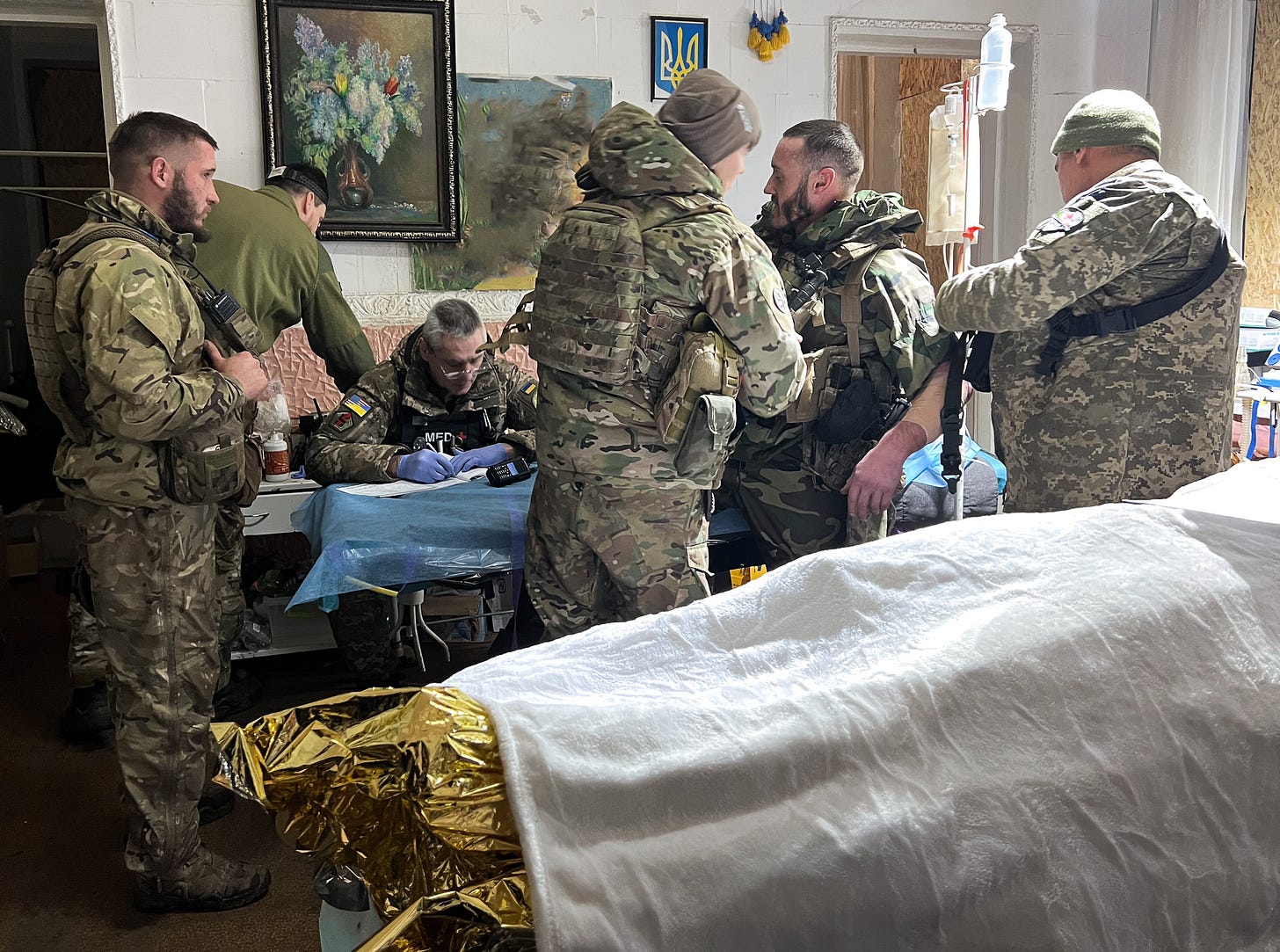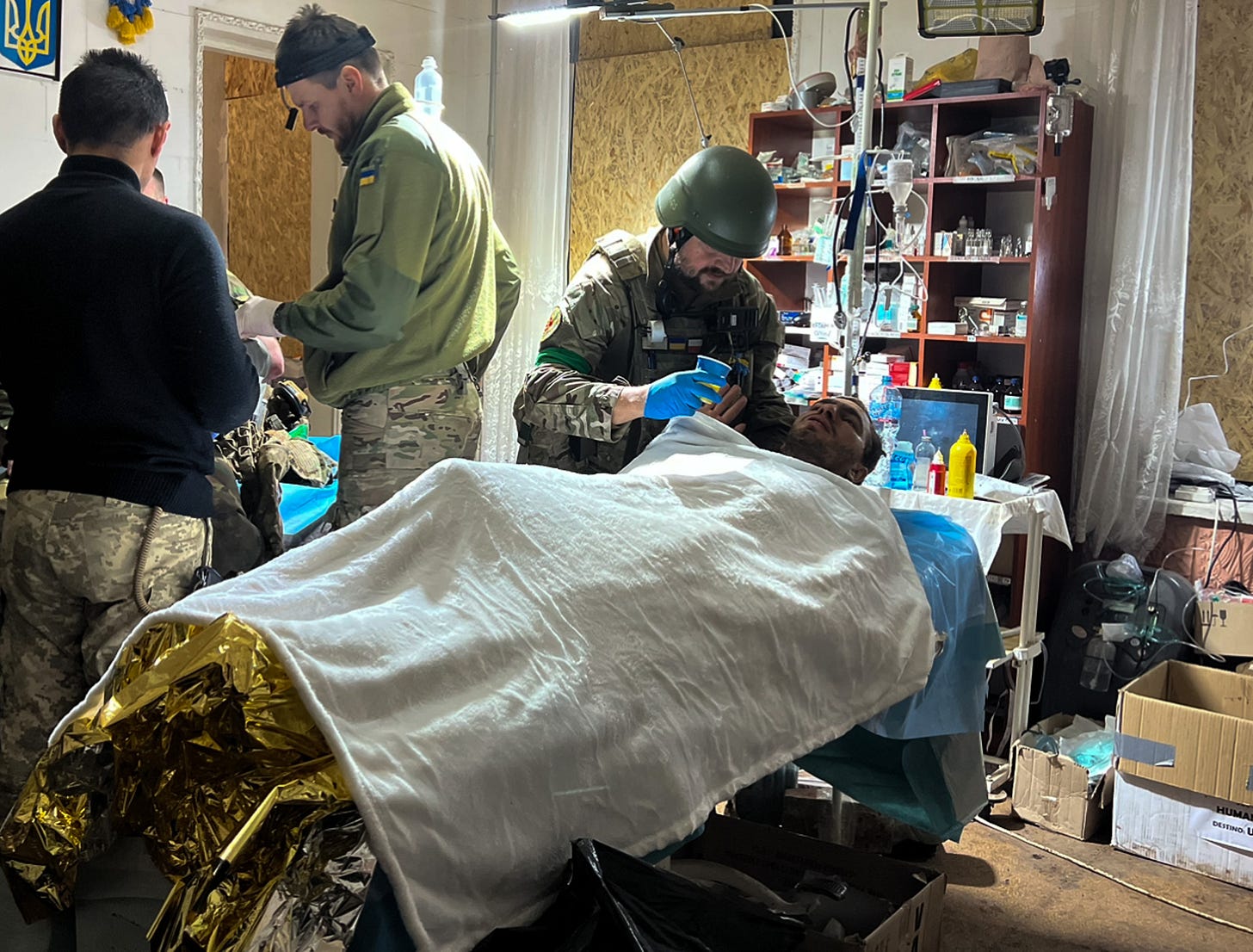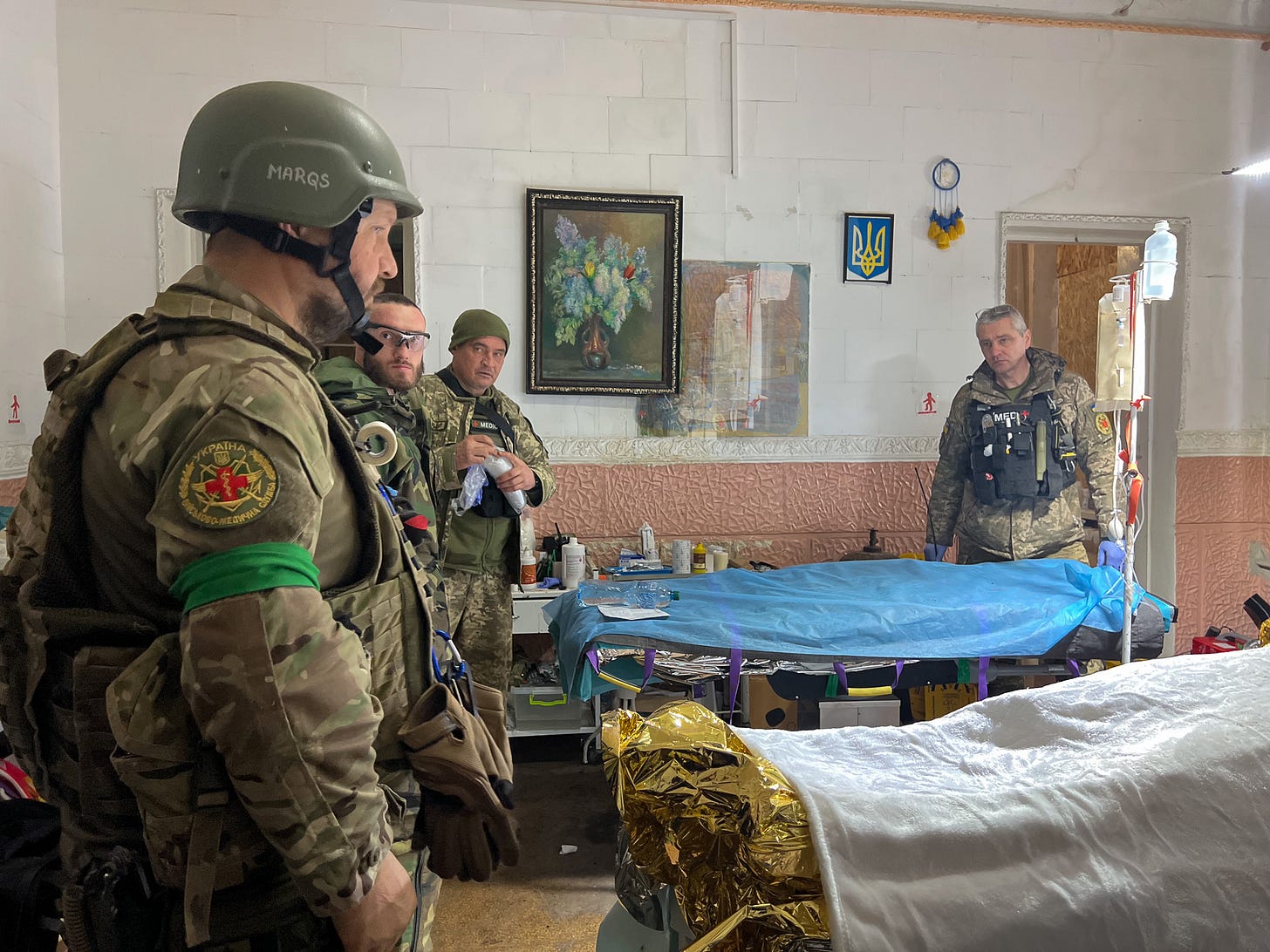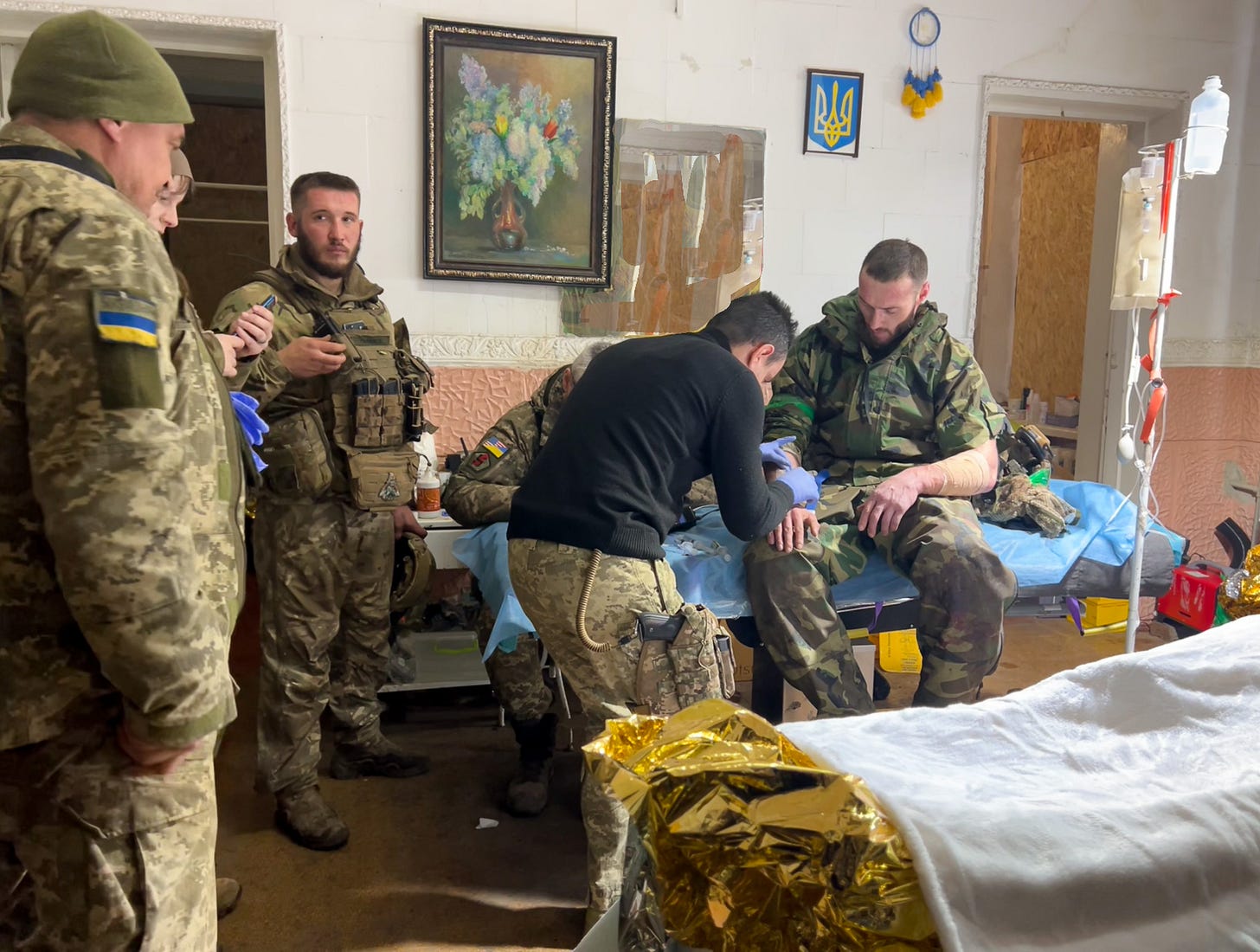Mar 29: Asami Terajima, ‘I work, then I cry’: Exhausted medics near Bakhmut fight for every life
As published in the Kyiv Independent on March 25, 2023
Asami Terajima, ‘I work, then I cry’: Exhausted medics near Bakhmut fight for every life- The Kyiv Independent
Donetsk Oblast – At an abandoned building about 20 minutes drive from Bakhmut, wounded Ukrainian soldiers pour in from the front line to receive emergency medical care.
One after another, the wounded are brought into a musty-smelling basement that is the 5th Separate Assault Brigade’s stabilization point for the soldiers fighting in the Battle for Bakhmut. Some soldiers can still walk on their own, while others are evacuated by their comrades from the battlefield.
Some days are harder than others, the combat medics say. It all depends on whether Ukrainian or Russian forces launch an assault on the others’ positions. With the ever-changing battlefield situation, the medics are always on standby.
“We sleep and work at the same place,” 59-year-old combat medic Serhiy, known by his callsign Kaplya (Drop), told the Kyiv Independent during a short break.
Anticipating a sudden influx of wounded soldiers at any time, Serhiy has taught his team to never let their guard down. Even when dealing with just a few light injuries, he emphasizes the importance of working quickly to be ready for all possible scenarios.
Once the wounded soldiers arrive at the stabilization point, the medics’ most important task is to stop their bleeding before transferring them to a hospital. But it gets especially difficult when dealing with serious cases like head injuries, which require more help and skill.
“The toughest moment is when you need to help many (soldiers with serious injuries) at once,” Serhiy said. He admitted that there were times when medics had to prioritize whom to help because they didn’t have enough hands.
“There are laws of military medicine, and this is called triage,” said Serhiy, explaining situations when medics choose who to save first.





Front-line medics near Bakhmut, the main hotspot of the war, are under enormous pressure as Ukrainian soldiers’ casualties mount due to Russia’s seemingly endless attacks.
More than eight months into the Battle of Bakhmut, Russia has closed in on the city but appears unable to make the final push.
About 90 percent of all casualties come from shrapnel injuries, according to 42-year-old combat medic Dmytro. He estimated that another four to five percent are from bullet wounds, and there are “a lot” of concussion cases as well.
Every day is “unpredictable,” Dmytro said. There are usually 30 to 45 wounded soldiers arriving daily. On some days, more than half of them have serious injuries, he added.
Though most arriving soldiers have a good chance of recovery if they make it to the stabilization point, that’s not always the case, Serhiy said. He said that he puts his emotions on hold during work, to avoid getting distracted.
“We keep working, and then, well, then I cry,” Serhiy said.

‘Morally difficult’
Under immense pressure, the group of 20 medics is doing everything to support each other. But spending the whole day in the basement and not being able to get out in the fresh air makes it hard, Dmytro said.
Many of the medics have not left the basement for a long time in more than a month. They are staying extra cautious to prevent Russian reconnaissance drones from spotting the stabilization point – one of the few in the area that haven’t yet been targeted. The indiscriminate shelling also makes it dangerous to go outside.
Dmytro said that he used to jump rope every day when his team was deployed near Toretsk – a town a few dozen kilometers south of Bakhmut. But now, in his current position, he never sees the sun and is worried that he will soon develop hypoxemia, due to low levels of fresh air.



His comrade Serhiy says his vitamin pills are helping him to stay energized.
For Serhiy, who has over 30 years of experience working in an intensive care unit of a maternity hospital in Kyiv, the hardest part is that sometimes his patients are beyond help.
Sometimes, the wounded aren’t brought to the makeshift hospital fast enough. When there is ongoing combat or intense shelling, soldiers can’t evacuate their comrades.
Even if the wounded make it to the evacuation point – a designated meeting spot typically 500 meters to 1 kilometer from the front line, combat medics are not always able to get to them in time.
“You see that there is a soldier with serious injury, and you could have helped him, but if they (the combat medics) couldn’t bring him to you on time, it’s too late to help him,” Serhiy said.
“This is the most difficult thing when a person is dying simply because of excessive blood loss,” he added. “It's morally very difficult when there are severely wounded (soldiers), and you can't help them.”



